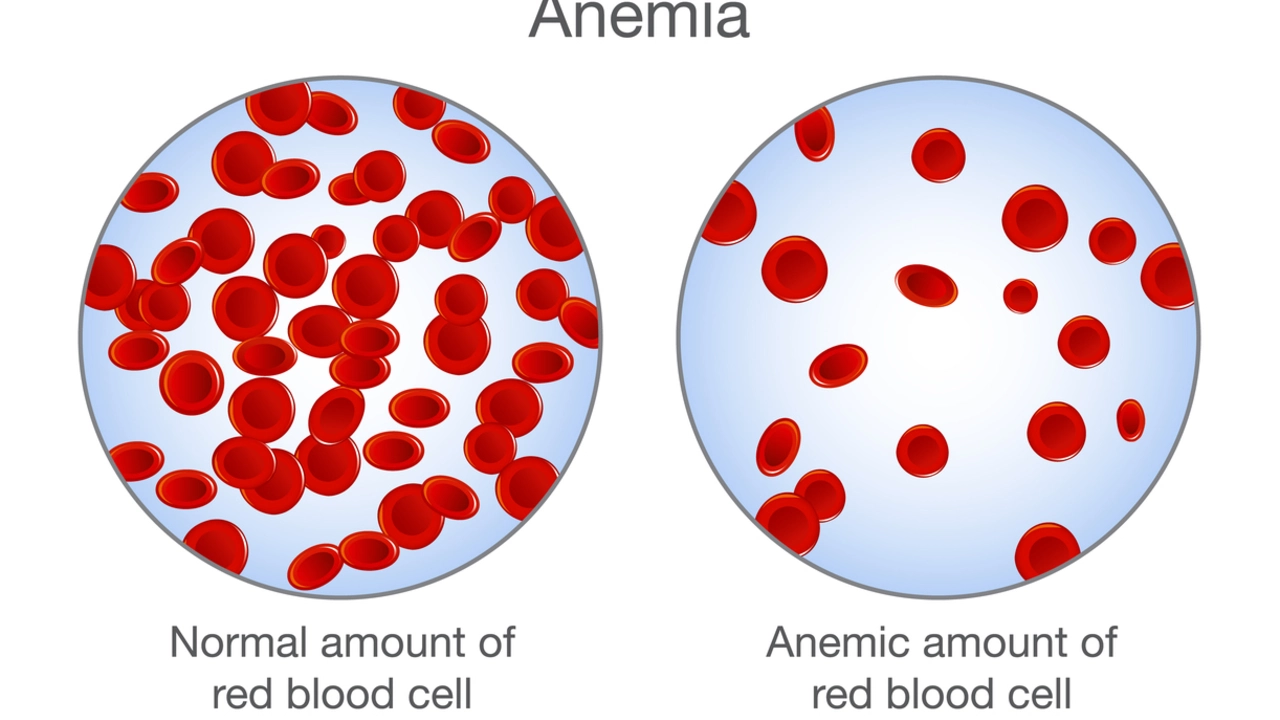The Role of Iron in DNA Synthesis and Anemia Prevention

Jul, 12 2023
Understanding the Importance of Iron
As an essential element, iron plays a vital role in maintaining our overall health. It is not only important for blood production but also for DNA synthesis and cell growth. Without an adequate amount of iron, our bodies struggle to function optimally, which can lead to a range of health problems, including anemia.
Anemia and Its Link with Iron Deficiency
Anemia is a condition that arises when our bodies lack enough healthy red blood cells or hemoglobin. Hemoglobin is the main part of red blood cells and binds oxygen. Iron deficiency is one of the leading causes of anemia as iron is a key component of hemoglobin. Without sufficient iron, our bodies can't produce enough hemoglobin for red blood cells. This results in reduced oxygen flow to the body's tissues, causing anemia.
Role of Iron in DNA Synthesis
Iron is essential for DNA synthesis because it acts as a cofactor for ribonucleotide reductase, the enzyme responsible for DNA synthesis and repair. Without sufficient iron, the process of DNA synthesis can be disrupted, leading to impaired cell function and growth.
Signs and Symptoms of Iron Deficiency Anemia
Common symptoms of iron deficiency anemia include fatigue, weakness, pale skin, chest pain, fast heartbeat or shortness of breath, headache, dizziness or lightheadedness, cold hands or feet, inflammation or soreness of the tongue and brittle nails. If you are experiencing any of these symptoms, it's important to consult a healthcare professional.
Preventing Iron Deficiency Anemia
Preventing iron deficiency anemia involves ensuring that you get a sufficient amount of iron in your diet. Foods rich in iron include red meat, poultry, seafood, beans, dark green leafy vegetables, dried fruit, iron-fortified cereals, and peas.
Why Iron Supplements are Important
For those who may not get enough iron from their diet, or those who have a medical condition that makes it hard to absorb iron, iron supplements are a good option. They can help replenish iron stores in the body and prevent anemia.
How Iron Absorption Works in the Body
Iron absorption is a critical process that occurs in the digestive tract. When we consume iron-rich foods, this iron is absorbed in the small intestine and then transported to the rest of the body where it is used to make hemoglobin and support DNA synthesis.
Impact of Iron Overload
While iron is vital for our health, too much iron can be harmful. Iron overload can cause damage to the organs, particularly the liver and heart. It's important to maintain a balance and not consume more iron than the body needs.
Iron and Pregnancy
During pregnancy, the body needs more iron to support the growing fetus and placenta and to maintain an increased blood volume. Without enough iron, a pregnant woman is at risk of iron deficiency anemia, which can lead to premature birth and low birth weight.
Final Thoughts on Iron and Anemia Prevention
Iron is a crucial element that plays a significant role in DNA synthesis and anemia prevention. It's essential to maintain a balanced diet rich in iron or take supplements if necessary to avoid the risk of anemia. Remember, both too little and too much iron can lead to health problems, so it's important to find the right balance.
